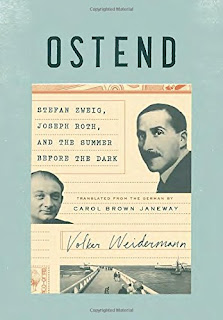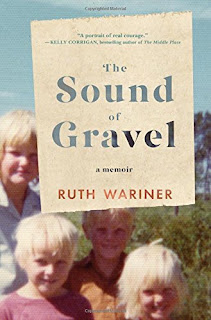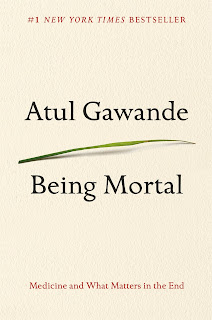Mrs. Elizabeth Keckly and Mrs. Mary Lincoln first meet in 1861 when Mary's husband is scheduled to take the oath of office. Mrs. Lincoln wanted fine clothes that would reflect her position as the nation's first lady. Mrs. Keckly was one of the best and most popular modistes in Washington, and while fulfilling one role, Elizabeth Keckly also became a confident and cherished friend to the president's wife.
The friendship between these two ladies unraveled when Mrs. Keckly published a memoir in 1868. The book, entitled Behind the Scenes, was a remarkably frank account of her own life. But it was also a revealing look at the Lincoln White House, one which crossed the "Victorian" codes of friendship and privacy. Ironically, with this publication, Mrs. Keckly had hoped to gain sympathy and understanding for a controversial first lady.
The author, Jennifer Fleischner, has written chapters which alternate between the two women, both of whom were born in 1818; each is profiled separately and chronologically up to their meeting in 1861. After 1861, it is a shared story of a remarkable friendship. Also, it is a great, if unfamiliar, tale in the Lincoln legacy, one which Mrs. Lincoln would write this acknowledgement to her seamstress, a former slave: "I consider you my best living friend."
Saturday, February 27, 2016
Sunday, February 21, 2016
The Imitation Game: Alan Turing Decoded by Jim Ottaviani
Alan Turing was a gifted cryptographer and scientist, who lived through a time of considerable turmoil, surviving both world wars. Turing's greatest achievements include solving the German Enigma machine code during WWII, helping to end the war earlier than thought possible, and advancing ideas of artificial intelligence and computer technology that are still relevant today. Unfortunately, his life ended all too soon, and his accomplishments were unfairly overshadowed by the trial and conviction of his publicly gay lifestyle.
The Imitation Game provides a thoroughly detailed account of Turing's adult life especially amid WWII but also with his career and life at university before and after the war in addition to the tragic circumstances that lead to his death. The artwork is loose and almost sloppy in presentation, which parallels Turing's own struggles with messy presentation of his work. However, the characters are well differentiated making it clear to readers as to whom is whom. Where this graphic biography excels is how it breaks down Turing's complex theories into simple terms. This is an excellent introduction to a remarkable person who deserved so much more recognition of his accomplishments during his lifetime.
If you would like to learn more, be sure to take a look at other books on Alan Turing, or check out the beautiful film, The Imitation Game.
The Imitation Game provides a thoroughly detailed account of Turing's adult life especially amid WWII but also with his career and life at university before and after the war in addition to the tragic circumstances that lead to his death. The artwork is loose and almost sloppy in presentation, which parallels Turing's own struggles with messy presentation of his work. However, the characters are well differentiated making it clear to readers as to whom is whom. Where this graphic biography excels is how it breaks down Turing's complex theories into simple terms. This is an excellent introduction to a remarkable person who deserved so much more recognition of his accomplishments during his lifetime.
If you would like to learn more, be sure to take a look at other books on Alan Turing, or check out the beautiful film, The Imitation Game.
Thursday, February 18, 2016
Ostend: Stefan Zweig, Joseph Roth, and the Summer Before the Dark by Volker Weidermann
Ostend was a popular resort on the Belgian coast. The Austrian author Stefan Zweig was vacationing there in 1914 when a world war was declared. Years later, Zweig invited Joseph Roth, the Austrian journalist, to join him in Ostend during the summer of 1936. Both men were Jews, emigres, and writers, whose books were banned in much of German-speaking Europe. A small colony of fellow writers, all anti-Fascist, was also in Ostend that summer, commiserating in a tranquil haven before the developing storm: The Spanish Civil War began on July 18. Hitler opened the Berlin Olympics on August 1 with hopes of putting a deceptive face on anti-Semitism. A dictatorship was established in Greece on August 4. The first of the Moscow Purge Trials took place on August 19.
Volker Weidermann, the author of Ostend, is a career journalist who has carefully researched this topic. He introduces his cast of celebrated writers, their writings, and their relationships to one another. He has read their letters, diaries, and memoirs. It's as if he was present during conversations, the walks they took together, and the cafes they frequented. His subjects become players in a real-life drama. More than one critic has remarked that Ostend is "as transporting as fiction."
Many of these writers did not survive the war years. Most, and perhaps all, of them may be unfamiliar to Americans. But in Europe they all enjoyed literary prominence on the eve of World War II. They are worth knowing. And today, you can't read Ostend without thinking about the emigre experience unfolding daily in our current news. It is this world of today, however, in which Germany has done so much to extend a welcome to emigres seeking peace, protection, and a new life.
Volker Weidermann, the author of Ostend, is a career journalist who has carefully researched this topic. He introduces his cast of celebrated writers, their writings, and their relationships to one another. He has read their letters, diaries, and memoirs. It's as if he was present during conversations, the walks they took together, and the cafes they frequented. His subjects become players in a real-life drama. More than one critic has remarked that Ostend is "as transporting as fiction."
Many of these writers did not survive the war years. Most, and perhaps all, of them may be unfamiliar to Americans. But in Europe they all enjoyed literary prominence on the eve of World War II. They are worth knowing. And today, you can't read Ostend without thinking about the emigre experience unfolding daily in our current news. It is this world of today, however, in which Germany has done so much to extend a welcome to emigres seeking peace, protection, and a new life.
Monday, February 15, 2016
Eligible: a modern retelling of Pride and Prejudice by Curtis Sittenfeld
Liz Bennett moves home with her elder sister, Jane, from New York City to suburban Cincinnati in order to help care for their ailing father and decrepit childhood home. A task that their mother and three younger sisters, who although grown and living at home, are too self-centered and selfish to accomplish. Then, the Bennett family is invited to the Lucas family's barbecue and meet Chip Bingley, a new ER doctor and recent reality-TV star of the bachelor series, "Eligible," as well as Chip's haughty friend, Fitzwilliam Darcy. Naturally, things begin well for Jane and Chip, while Liz and Darcy equal instant animosity.
Sound familiar? Sittenfeld reserves a few twists and turns for some of the characters, creating a welcome divergence from what readers will expect and generating a keen curiosity to see just how this tale will pan out in comparison. Can the original classic, Pride and Prejudice, ever be surpassed? No, but Sittenfeld still manages a great deal of the humor, wit, and disastrous first impressions in her contemporary take on the tour de force. And even if you are unfamiliar with this novel's inspiration, anyone who enjoys dramatic romantic tussles similar to those manufactured on reality TV will be well rewarded.
Sound familiar? Sittenfeld reserves a few twists and turns for some of the characters, creating a welcome divergence from what readers will expect and generating a keen curiosity to see just how this tale will pan out in comparison. Can the original classic, Pride and Prejudice, ever be surpassed? No, but Sittenfeld still manages a great deal of the humor, wit, and disastrous first impressions in her contemporary take on the tour de force. And even if you are unfamiliar with this novel's inspiration, anyone who enjoys dramatic romantic tussles similar to those manufactured on reality TV will be well rewarded.
Monday, February 8, 2016
The Sound of Gravel by Ruth Wariner
Ruth is her father's 39th child, growing up in a Mormon polygamous cult in rural Mexico called Colonia LeBaron. Her father was the leader when he was murdered by his brother shortly after Ruth was born. Her mother became the second wife of another LeBaron member and moved her family into a dilapidated house with concrete floors, no electricity, and no plumbing. The husband was unable to support multiple families, so Ruth's mother shuttled her children back and forth from the United States to Mexico in order to obtain government financial assistance. These brief trips and other lengthier periods when Ruth and her family lived among ordinary Americans provided her with the ability to critically compare her family's way of life and how it fell far short of the safe and healthy childhood all children should have.
For anyone curious about religious and doomsday cults, Wariner reveals the inner workings and recounts her disturbing childhood with exacting detail and compassionate insight but absent a woe-is-me attitude. Her writing style makes for an illuminating and fascinating memoir that reads quickly and keeps readers engaged. Despite the grim experiences she continually faced, Wariner's tale is ultimately one of triumph, escaping her desperate circumstances for a better life.
For anyone curious about religious and doomsday cults, Wariner reveals the inner workings and recounts her disturbing childhood with exacting detail and compassionate insight but absent a woe-is-me attitude. Her writing style makes for an illuminating and fascinating memoir that reads quickly and keeps readers engaged. Despite the grim experiences she continually faced, Wariner's tale is ultimately one of triumph, escaping her desperate circumstances for a better life.
Monday, February 1, 2016
Being Mortal by Atul Gawande
Atul Gawande, a Boston surgeon has now written three bestselling books on the medical field. Oliver Sacks hailed him as one of "the finest physician writers." Gawande subtitled this work "Medicine and What Matters in the End." Medicine is the miracle of modern health care. It has transformed our expectations and eased our worries about childbirth, injury and disease. We live in a time when people live longer, an older generation anticipates enjoying the golden years being cared for and in reasonable health.
But the end will come, no matter. Death is the enemy and death will win. And the simple fact is that modern medicine and the most sophisticated surgical procedures may not always be the best option. Gawande shares poignant and agonizing stories of his own patients facing mortality. They include his father who was also a physician. But these stories also share a sense of peace in the most fateful moments.
While Being Mortal is a clear-eyed look at aging, it is also a candid examination of the medical community. We rely on doctors to save and extend life in our most advanced years. But few medical students take classes in geriatrics. What choices do they give to the elderly at the end of their lives? Is death even discussed? What does a doctor, committed to saving life, say when faced with an unfixable problem? Perhaps Gawande says it best: "We've been wrong about what our job is in medicine. We think it is to ensure health and survival. But really it is about well-being. And well-being is about the reasons one wishes to be alive."
Also available is the PBS documentary Being Mortal.
But the end will come, no matter. Death is the enemy and death will win. And the simple fact is that modern medicine and the most sophisticated surgical procedures may not always be the best option. Gawande shares poignant and agonizing stories of his own patients facing mortality. They include his father who was also a physician. But these stories also share a sense of peace in the most fateful moments.
While Being Mortal is a clear-eyed look at aging, it is also a candid examination of the medical community. We rely on doctors to save and extend life in our most advanced years. But few medical students take classes in geriatrics. What choices do they give to the elderly at the end of their lives? Is death even discussed? What does a doctor, committed to saving life, say when faced with an unfixable problem? Perhaps Gawande says it best: "We've been wrong about what our job is in medicine. We think it is to ensure health and survival. But really it is about well-being. And well-being is about the reasons one wishes to be alive."
Also available is the PBS documentary Being Mortal.
Subscribe to:
Comments (Atom)





